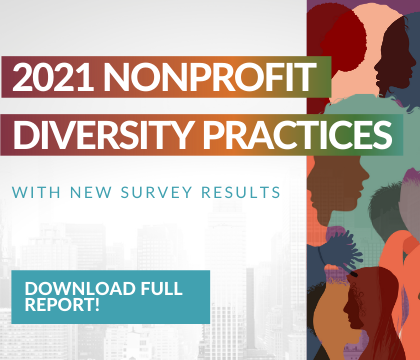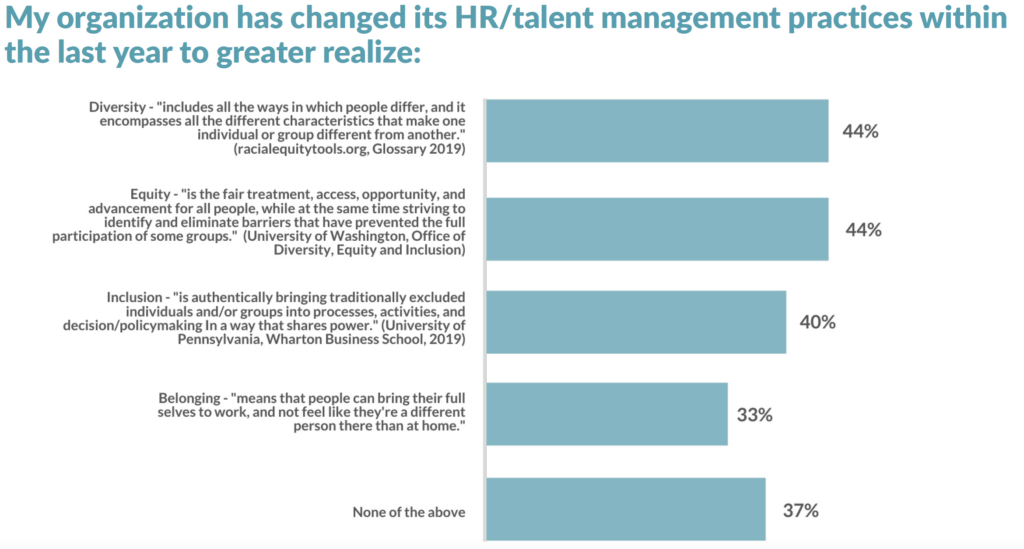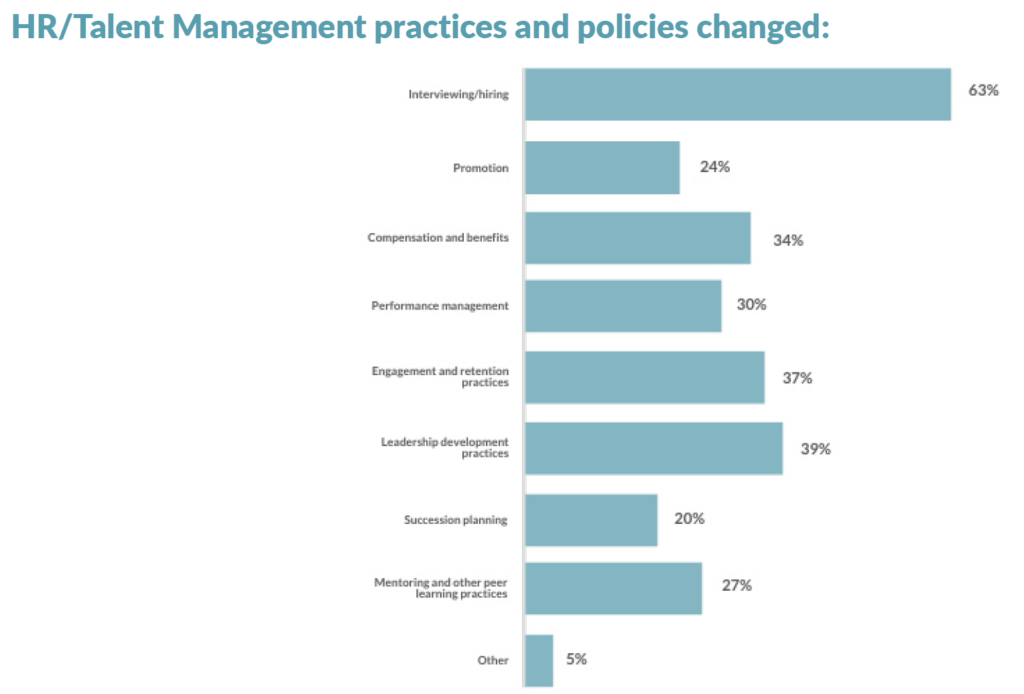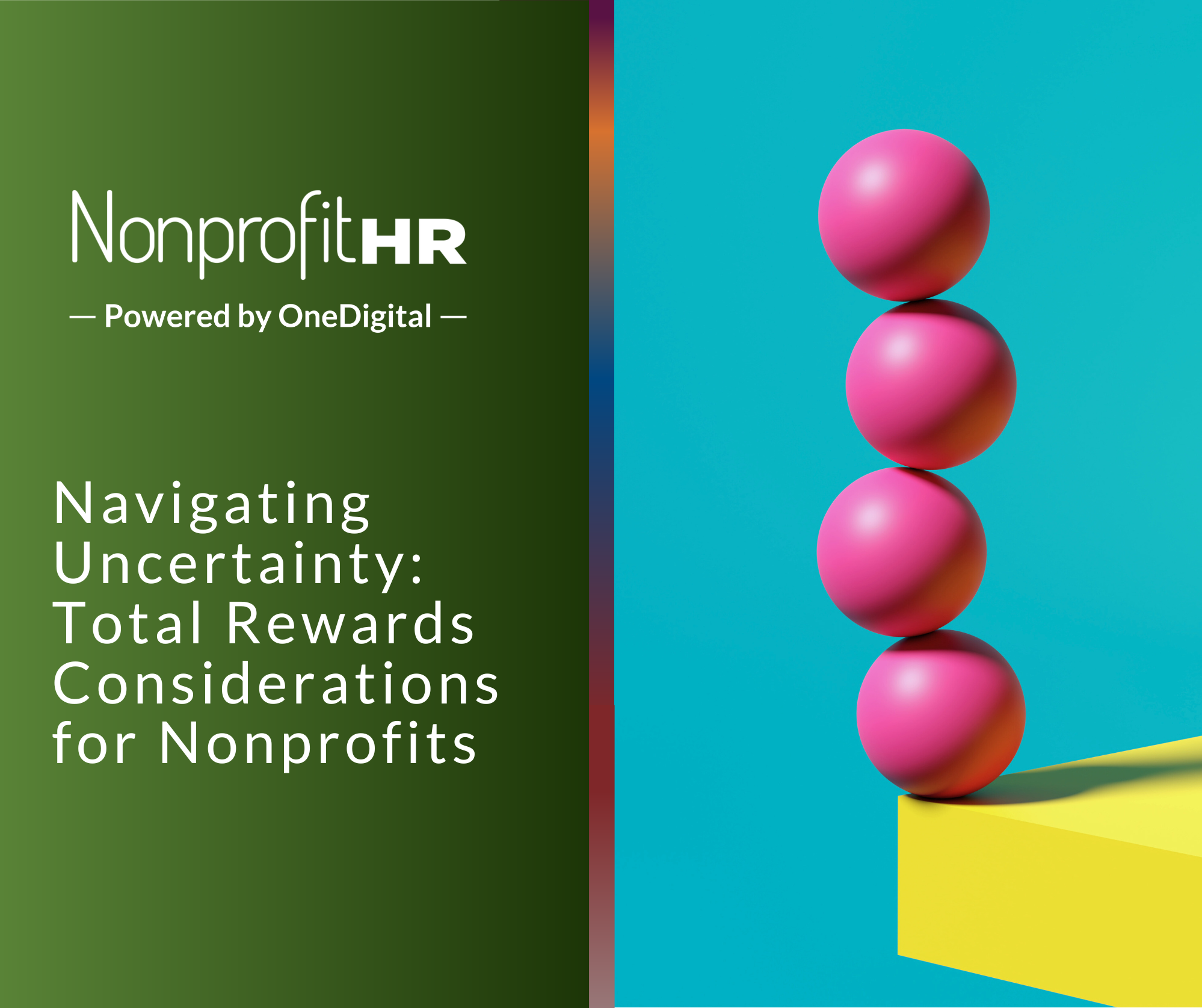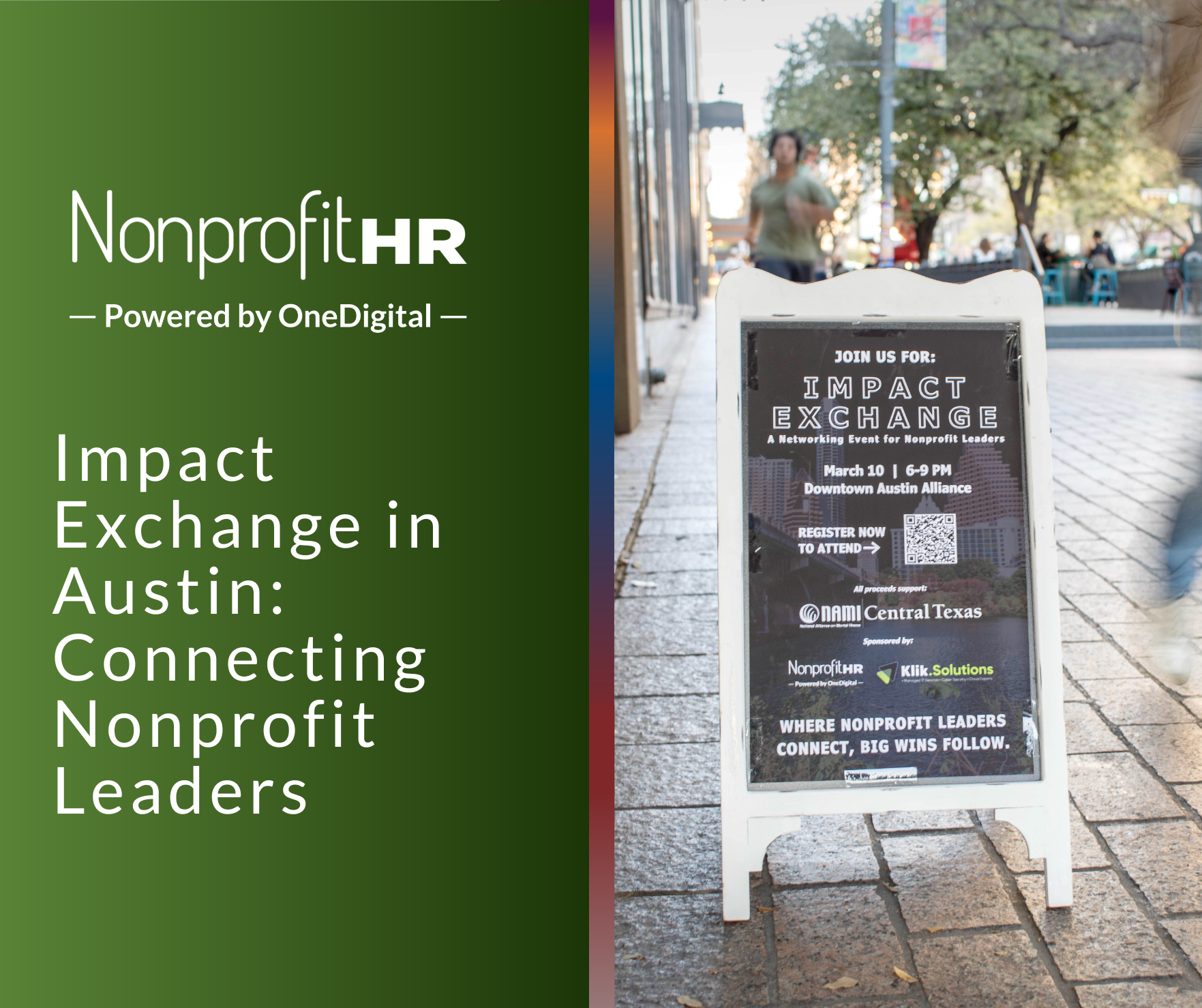WTOP: 5 ways nonprofits can…
As our nation continues to grapple with racism and inclusion issues, we have seen that more nonprofits are increasing their efforts to address DEI and belonging. In the 2020 Nonprofit Diversity Practices Survey, 67% of respondents indicated that their organizations changed their HR or talent management practices within the last year to realize greater diversity, equity and/or inclusion. In 2019, only 50% of respondents indicated that their organization changed its HR or talent management practices in an effort to realize greater organizational diversity. We, Nonprofit HR’s DEI team, have seen these changes first-hand among some of our clients. In addition, 63% of survey respondents indicated they had changed their interviewing and hiring practices within the last year to realize greater DEI. Many nonprofits that did not previously consider how DEI factored into their talent acquisition practices are now focusing their efforts on seeking a diverse candidate pool and ensuring a candidate experience that is more equitable and inclusive. Some are identifying new avenues for identifying candidates. Others are training their hiring managers in resume screening and interviewing techniques that help reduce bias. Turnover and disengagement can have detrimental effects on a nonprofit’s ability to achieve its mission, which is likely why 36% of respondents have changed their practices aimed at engagement and retention. Employees tend to stay with an organization in which they are engaged and feel valued. Engagement stems from many positive factors, including the feeling of inclusion and belonging from a culture in which these are fostered. Strong leaders realize this and seek to intentionally build a culture grounded in values such as respect. Today’s employees are examining the cultures of their potential and current workplaces and in many cases, are pushing for stronger talent management practices aligned with DEI. Many responding organizations (38%) also indicated they changed their leadership and development practices within the past year to realize greater DEI. I have seen many instances where the leadership of our nonprofit clients has stepped up to make DEI a priority in their organization. This includes clients making space for staff to have conversations about DEI; reviewing policies and practices through a DEI lens; and including DEI in strategic plans. These nonprofits are not only looking at internal practices but leading change with their external stakeholders as well. Many are also realizing the importance of providing training to help their employees and board better understand the impact of unconscious bias, micro-aggressions or racial equity. It is reassuring to witness and participate in these needed changes in talent management practices. While these changes seem to have been advanced by our current climate and the workforce’s evolving needs, the forward movement of “the needle” to achieve greater diversity, equity and inclusion will only serve to strengthen our sector. By Karen Friedman, Senior Manager, Access and Ability at YMCA of the USA While employers may increase awareness and incentives for hiring talent with diverse abilities, the stigma and fear of identifying as having a disability at work is still a concern for many individuals with disabilities. Over the past couple of years, there has been a shift in Fortune 500 companies to better understand how many of their employees have disabilities and how to support them better. It is refreshing to see work being done on creating inclusive work cultures to create safe spaces to identify as having a disability—very similar to how organizations have focused on creating spaces for employees based on race and gender. Companies have started establishing employee and/or business resource groups for employees with disabilities, which is an important first step in acknowledging and supporting employees with disabilities. In coordination with these employees, some employers are asking optional questions regarding self-identification of disability. As with any data collection, ethics is core to the process. In all instances of DEI work in this space, partnering with your ADA experts and employment attorneys is strongly recommended. Access these resources for additional insights: Self Identification Campaigns Become familiar with the national organization supporting business disability inclusion, Disability:IN Karen Friedman is the Senior Manager of Access and Ability with the Diversity and Inclusion department at Y-USA. Karen provides strategic and technical leadership to Y-USA’s ADA compliance and inclusion portfolio and supports the engagement of underserved communities as part of the Diversity, Inclusion and Global (DIG) team.Emerging Wins and Opportunities to Advance the Work and Dialogue"
UNC Self-ID campaign
Mayo Clinic Self-ID Campaign Video
ERG/BRG Resource
Inclusion Roadmap
Best Practices in Self-ID
